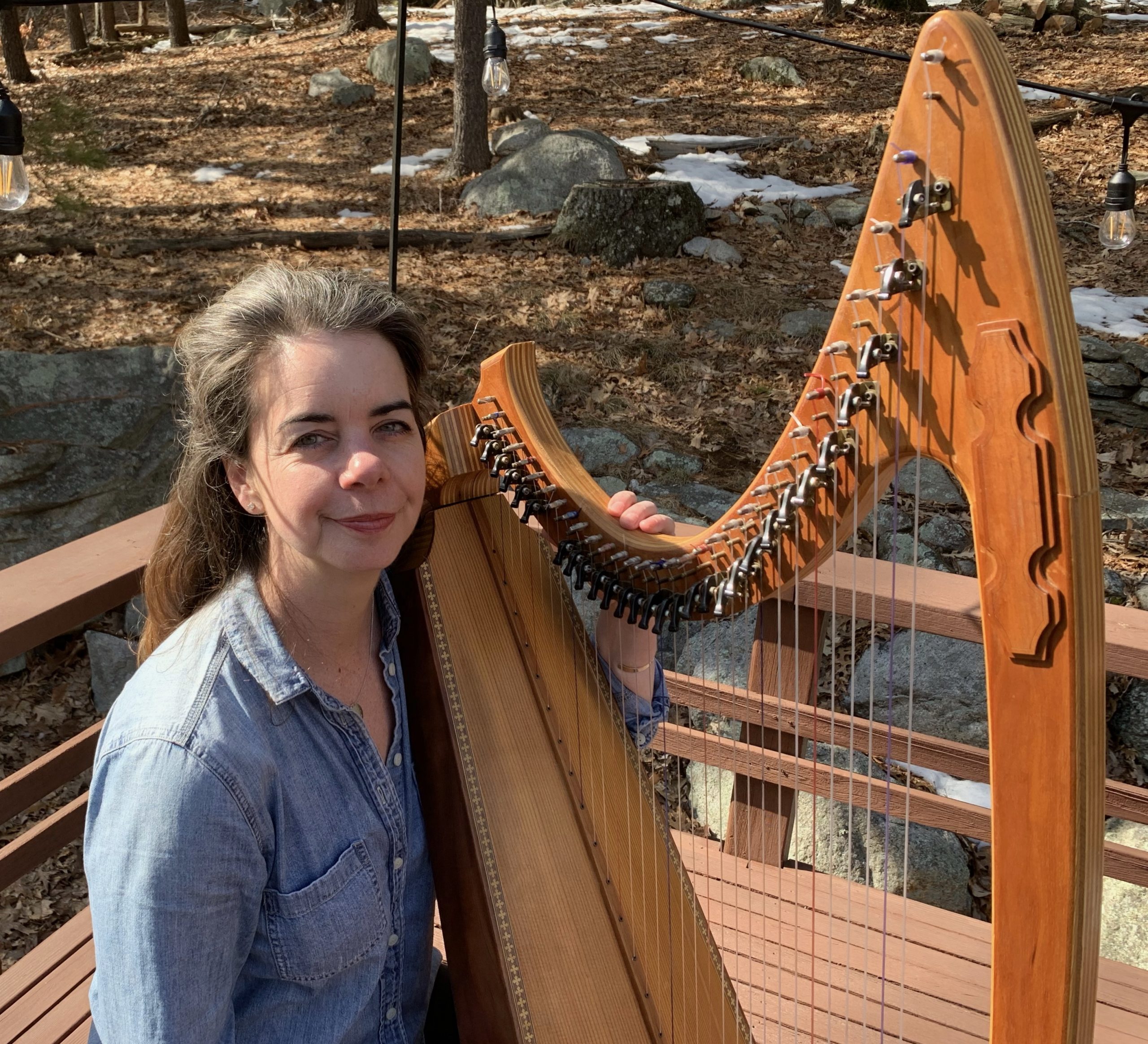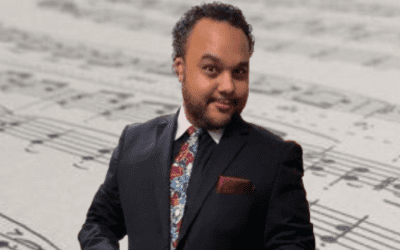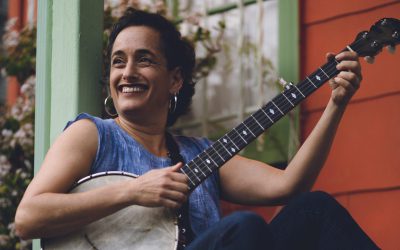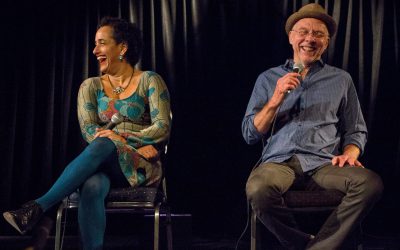Thank you so much for joining part 2 of my conversation with music-thanatologist, writer and poet, Jennifer Hollis:
To listen to this episode as a podcast, search for Agile Vocalist wherever you get your podcasts.
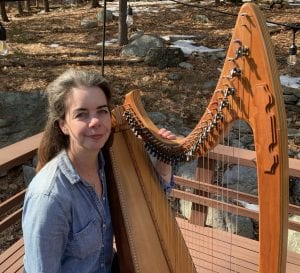
Jennifer Hollis and her harp.

Listen to Jennifer sing and play.
- Experiencing emotion: the unacknowledged labor of feeling feelings
- Music is effective because it’s wordless
- Pivoting playing at bedsides to virtual music experiences
- Unexpected learnings about virtual music and Harps of Comfort
- Jennifer’s hopes for the future of music-thanatology, using technology to meet distant patient need
- Also acclaimed also for her poetry, Jennifer reads “Hurry” by Marie Howe to us as well as one of her own poems in closing
Did you miss part 1 of the conversation with Jennifer? Not to worry, you can get it right here.
Did you enjoy this? Please share it on your socials, leave me a comment, or subscribe to hear more Agile Vocalist.
Episode Transcript
Part 2 of my interview with Jennifer Hollis
[Spoken intro: “Listen to this next Agile Vocalist blogcast” + music]
Rachel Medanic: Experiencing emotions is work, every psychologist knows that, everyone in therapy knows that. There’s a lot of parts of our culture where we don’t talk about the work because emotions come into the body, and they make chronic issues and if you don’t process, the body traps that. As physical beings, it’s just interesting. I love to find those sort of really obvious things that we all know, but until someone actually says that you’re like, “Oh, yes.”
Jennifer Hollis: I think of it, it’s another kind of labor, the comparisons between childbirth and dying are very common, but I think this word labor is really meaningful in this context, because there’s so much labor, the labor of letting go of your life, the labor of saying goodbye to your loved ones, the labor of closing out this conversation that you’re having together, and trying to tolerate these feelings, this overwhelming feeling, whatever it is, no doubt, it’s a complicated matrix of emotions, depending on how the relationship is and how the system works.
One of the things about music, and one of the reasons why I think it’s effective is that people don’t have to put anything into words in a music vigil, they don’t have to explain themselves to me, they don’t have to tell me their story, no matter how complicated it is– they’re welcome to and many families do share things with me. But I really, really want the music to mediate the connection, to be the kind of one in between us so that I don’t have to explain lots of stuff about myself, and they don’t have to explain lots of stuff.
Rachel: We’ve all changed with Coronavirus. We’ve all been affected and its domino effects and how it affects one thing and then the next and the next, from all sorts of standpoints has been really shattering. Can you talk about, because your work is typically at bedside, wherever that bed may be, can you talk about how you’ve pivoted and what you’ve done in response to COVID-19? This is so exciting to me because it’s the area I’m passionate about, virtual music.
Jennifer: Absolutely, sure. Last March, just about a year ago, I started just thinking and thinking and thinking. Once it became clear that we were on lockdown and the schools were closed and people were dying, and they were dying all over the world, of course, it became clear to me that this work of music-thanatology, which had always threw off to the side, I’d always been like, “Your friend who can talk about hospice.” “I’m your friend that you call when you want to talk about death and dying and you don’t really know how to do it.” All of a sudden, everything on the news is about PPE, everything on the news is about ventilators and ICUs and intubations and extubations.
All things I had been witness to, I thought music-thanatology really has something to say to this moment. Music-thanatology could really accompany people as they go through this, but we’re no longer allowed into medical institutions. How are we going to do this? I worried and worried and worried about it for a few weeks and then I got a tweet from a physician I’ve never met, Dr. Jennifer MacKinnon at Froedtert Hospital in Wisconsin. She said, “I’m a harpist and a doctor and I’d like to work with you to help bring music into ICUs.” I know a sign when I see one, this is when I said, “Yes.”
Slowly, slowly, slowly over the course of many months, I gathered a group of music thanatologists and other therapeutic musicians, along with Dr. McKinnon and we just started talking about how we could do this remotely, what would this look like? The upshot was that in September, we started playing for COVID patients in the ICU at the hospital where Dr. McKinnon worked. We developed a referral process, we had a setup, wherever the harpist was. They’re eight harpists. They have setups in their homes. On the unit, the patients have an iPad, and they play remotely.
I will say that before COVID, I would probably have made a strident argument that live music was always better, because you could respond in the moment and you could feel the vibration and you have the interpersonal and the nonverbal information. I have to say, based on what we’ve observed, I would say that it’s not better or worse than live or recorded music, it is its own entity. That’s what I think that we’re learning, to do this through a screen, just as you and I are having a conversation, it isn’t the same as being on the phone, it isn’t the same as going on a walk together, it’s a different, unique thing.
One of the harpists said that they had a patient visit and the patient said, “I’ve never been so close to a harp.” Of course, the harp was thousands of miles away, they felt like they were close to the harp. I’ve had harpists who shared that they could actually observe the patient’s respirations better over the iPad than sometimes in person, because if the placement was right, they could just see so much more of what was going on for the patient than if they were in a busy hospital room or a place where it was hard to get closer. That kind of thing.
There’s the benefit of being able to see patients anywhere in the world, the harpists of Harps of Comfort are all across the country. We did eventually form into this organization called Harps of Comfort and we have a fiscal sponsor called Community Initiatives, which just means that they our–
Rachel: They take care your funding?
Jennifer: They take care of our funding, and they also provide administrative support. We’re a project of Community Initiatives. We were very lucky to find them and have them support us. We are funded through donations and so we can always say yes to patients because we don’t receive payment from them, so we can see anyone who wants to see us. It’s just been very interesting to begin to think about what will happen in a post-pandemic world for remote music, but my hope is that we will continue to develop our capacity to see people remotely and serve people who have been underserved before now because they couldn’t have in-person music.
Rachel: You talked a little bit about virtual music, hopefully living on– what do you hope? Beyond that, is there more that you hope will stay from this time of shattering and then rebuilding how we think about music, how we think about music experiences. What would you like to hold on to? Would you like to hold on to doing some of your time with Harps of Comfort and some in-person, what’s your vision for nine months from now on? Let’s be hopeful.
Jennifer: Sure, sure. I love the in-person work. Personally, I would imagine a combination, but one of the factors of my whole career because there aren’t that many music thanatologists has been, people call me and they say, “Can you drive 500 miles away to play? You’re the only one I know, who’s nearby, can you drive 500 miles tomorrow to play for my loved one?” I’ve always had to say no. Now I know something new, which is I can play for that person remotely. It really solves the problem for a very small field that has wanted to serve more patients but hasn’t always been able to.
I’m excited about those possibilities and there is something very special about being physically present with people and I think because of the long separation that we’ve had, I will very likely value it more than I ever have in my entire life, to be able to be physically present with people. To be able to play, to bring the physical instrument of the harp into the room with people, to share that space and air and vibration and all of that together is very special. My hope is that we’ll be able to continue to do both.
I think also in a post-pandemic world, a lot of the people that have been caring for the dying nonstop, will need support and care. Harps Of Comfort is making some inroads trying to offer this. My hope is that we could also be present for caregivers, as they process and reflect on what this time in hospital settings was, when the numbers decline significantly, when they’re able to get a breath. To provide that musical space for their own emotional processing.
[music]
The Marie Howe poem is called, Hurry. Marie Howe is just an incredible poet. This poem is from a book called The Kingdom Of The Ordinary, but she also has a book called What The Living Do, which I cannot recommend highly enough that she wrote about– she had a brother who died in his 20s and it’s a lot of poems about going through that.
Rachel: Wow.
Jennifer: Anyway, this is about errands, and I think many of us can probably relate, it’s called Hurry.
We stop at the dry cleaners and the grocery store
and the gas station and the green market and
Hurry up honey, I say, hurry,
as she runs along two or three steps behind me
her blue jacket unzipped, and her socks rolled down.
Where do I want her to hurry to? To her grave?
To mine? Where one day she might stand all grown?
Today, when all the errands are finally done, I say to her,
Honey I’m sorry I keep saying Hurry—
you walk ahead of me. You be the mother.
And, hurry up, she says, over her shoulder, looking back at me, laughing. Hurry up now darling, she says,
hurry, hurry, taking the house keys from my hands.
Rachel: Oh, that’s great.
Jennifer: I love that poem. It says so much about the before times, after times and what is it that we’re going to keep and what are we going to let go of. How much precious time we’ve had if we live with our loved ones, how much more time we’ve had with them in the last year. I’ll just share one more poem, which I wrote that was published in a literary magazine called Crosswinds Poetry Journal. It’s about music-thanatology.
Rachel: Oh, beautiful.
Jennifer: It’s called, How I Can Do It.
I go to the bedside
Along the way I reach for God like a kite out the window
There is no tenderness like the welcome of a stranger
Welcome for my strange harp welcome for the old songs
Death draws warm honey out of people we will always remember you
God sits in the corner as brokenhearted grandma
I sit in the center as half-angel.
I sing slowly, pulling a teaspoon of focus away
The breath of one body begins to yield as the tulips yield in the breeze
The breath of one body slows deepening, the others watch leaning back into plastic chairs
Welcome for the simple music
together we rock as we were rocked as children and soothed
There is no lullaby like this, no gentle boat, like a hand cradling a frightened hand
God and death have a silent conversation
Their words are a strangeness in the air
Not quite a storm not quite a mood.
In this butterfly bed, dying looks as fine as sleep and just as kind
It’s all right It’s all right We love you. You can go.
[Agile Vocalist outro and music] That was inspiring. Be sure to listen again soon.

